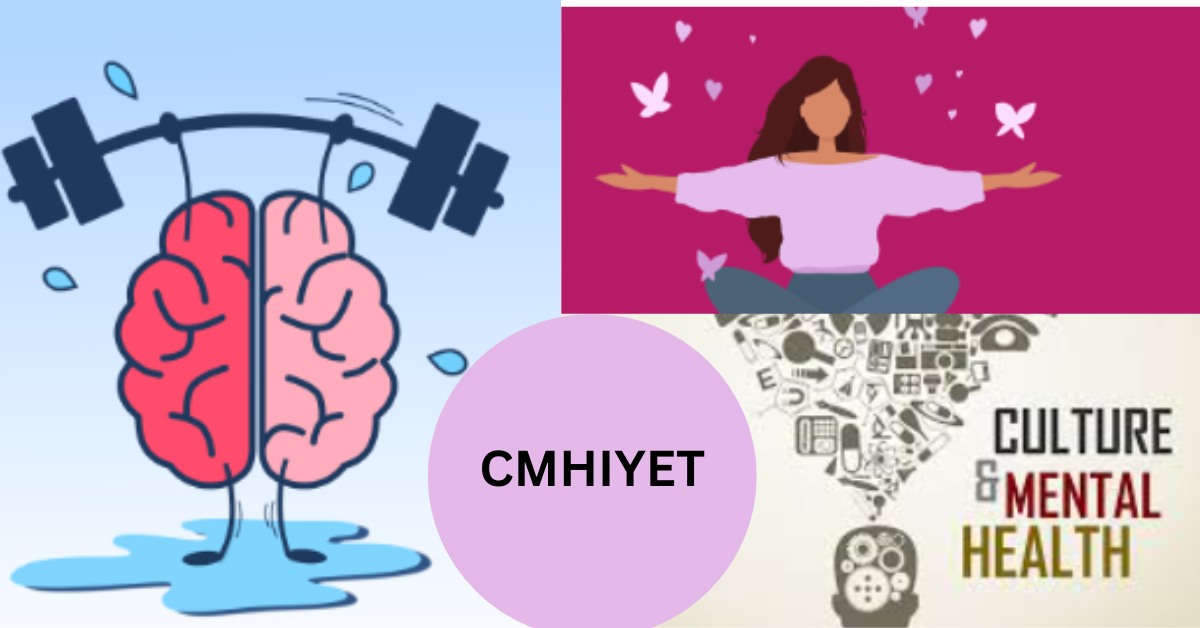Welcome to an insightful exploration of CMHIYET – the intersection of culture and mental health. Culture significantly shapes our beliefs about mental illness and influences how we seek help and support. Join us on this enlightening journey as we delve into the impact of cultural diversity on mental well-being and discover strategies for promoting inclusive and empathetic mental health care.
Understanding CMHIYET: The Role of Culture in Mental Health

The Influence of Cultural Beliefs on Mental Health
Culture shapes our understanding of mental health, influencing everything from the recognition of symptoms to the acceptance of treatment. Different cultures have varying beliefs about what constitutes mental illness, which can affect diagnosis and the willingness to seek help. CMHIYET aims to highlight these differences and promote a more nuanced understanding of mental health across cultures.
Stigma and Mental Health in Diverse Cultures
Stigma surrounding mental health issues can be more pronounced in some cultures, leading to underreporting and a reluctance to seek professional help. This can exacerbate mental health problems and prevent individuals from receiving necessary support. Understanding CMHIYET can help break down these barriers and encourage more open conversations about mental health.
Cultural Barriers to Mental Health Care
Language barriers, cultural misunderstandings, and lack of culturally competent care can prevent individuals from accessing mental health services. Recognizing and addressing these barriers is crucial for developing effective mental health interventions that respect and integrate cultural contexts.
The Impact of Cultural Diversity on Mental Well-being
Mental Health Disparities Among Ethnic Groups
Research shows that certain ethnic groups experience higher rates of specific mental health disorders, influenced by factors such as socioeconomic status, discrimination, and historical trauma. Addressing these disparities requires targeted strategies that consider cultural context. CMHIYET encourages a focus on these disparities to ensure equitable mental health care for all.
The Role of Cultural Identity in Mental Health
A strong cultural identity can be a source of resilience and support for mental health. Conversely, cultural dislocation or conflict between cultural values and the dominant culture can lead to mental health challenges. CMHIYET highlights the importance of supporting cultural identity to promote mental well-being.
Traditional Healing Practices and Mental Health
Many cultures have traditional healing practices that play a significant role in mental health care. Integrating these practices with conventional mental health treatment can enhance the effectiveness and acceptability of care. CMHIYET advocates for the recognition and integration of these traditional practices in modern mental health care.
Strategies for Promoting Inclusive and Empathetic Mental Health Care

Cultural Competence in Mental Health Professionals
Training mental health professionals in cultural competence is essential for providing effective care. This involves understanding cultural differences, being aware of one’s own cultural biases, and developing skills to work effectively with diverse populations. CMHIYET promotes the need for cultural competence in mental health care.
Culturally Adapted Interventions
Adapting mental health interventions to fit cultural contexts can improve their effectiveness. This can involve modifying language, incorporating cultural beliefs and practices, and addressing culturally specific stressors. CMHIYET supports the development of culturally adapted interventions to ensure effective mental health care for all.
Community-Based Mental Health Initiatives
Community-based approaches that involve local leaders and use culturally relevant methods can be more effective in promoting mental health and well-being. These initiatives can also help reduce stigma and increase acceptance of mental health services. CMHIYET encourages community-based initiatives to foster inclusive mental health care.
Exploring New Perspectives in CMHIYET – Let’s See!
Intersectionality and Mental Health
Intersectionality, the interconnected nature of social categorizations such as race, class, and gender, affects mental health. Understanding how these intersecting identities influence mental health can lead to more nuanced and effective interventions. CMHIYET emphasizes the importance of considering intersectionality in mental health care.
The Impact of Acculturation on Mental Health
Acculturation, the process of cultural change and psychological adjustment that occurs when individuals from different cultures come into continuous contact, can impact mental health. Both positive and negative aspects of acculturation need to be considered in mental health care. CMHIYET provides insights into the impact of acculturation on mental health.
The Role of Technology in Culturally Competent Mental Health Care
Technology can bridge cultural gaps in mental health care, offering tools like translation services, culturally adapted mental health apps, and teletherapy to reach diverse populations. CMHIYET explores how technology can enhance culturally competent mental health care.
FAQs About CMHIYET
1. What does CMHIYET stand for?
CMHIYET stands for Culture, Mental Health, and Intersectionality in Your Everyday Thoughts, highlighting the interplay between cultural factors and mental health.
2. How does culture influence mental health?
Culture influences mental health through beliefs, practices, and norms that shape perceptions of mental illness, stigma, and approaches to treatment.
3. Why is cultural competence important in mental health care?
Cultural competence is important because it ensures that mental health professionals can effectively and respectfully work with clients from diverse cultural backgrounds, improving care quality and outcomes.
4. What are some examples of culturally adapted mental health interventions?
Examples include using culturally relevant metaphors and narratives in therapy, incorporating traditional healing practices, and addressing culturally specific stressors.
5. How can community-based initiatives improve mental health care in diverse populations?
Community-based initiatives involve local leaders and culturally relevant methods, which can reduce stigma, increase acceptance, and make mental health services more accessible.
Conclusion
CMHIYET provides a comprehensive framework for understanding the complex relationship between culture and mental health. By exploring cultural influences, addressing disparities, and promoting culturally competent care, we can move towards a more inclusive and empathetic mental health system. Embracing cultural diversity and intersectionality is essential for enhancing mental well-being and ensuring that everyone has access to effective and respectful mental health care.
